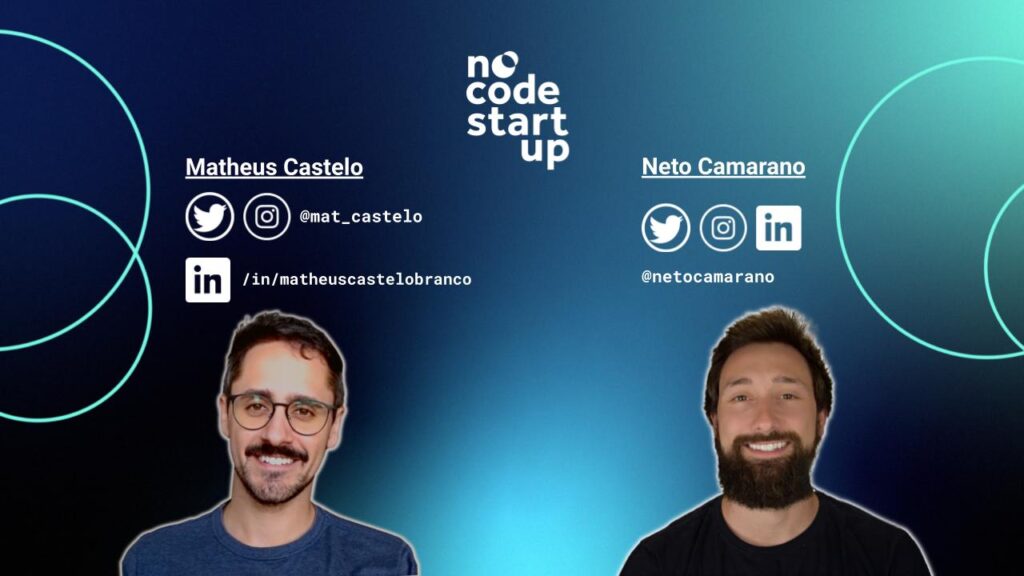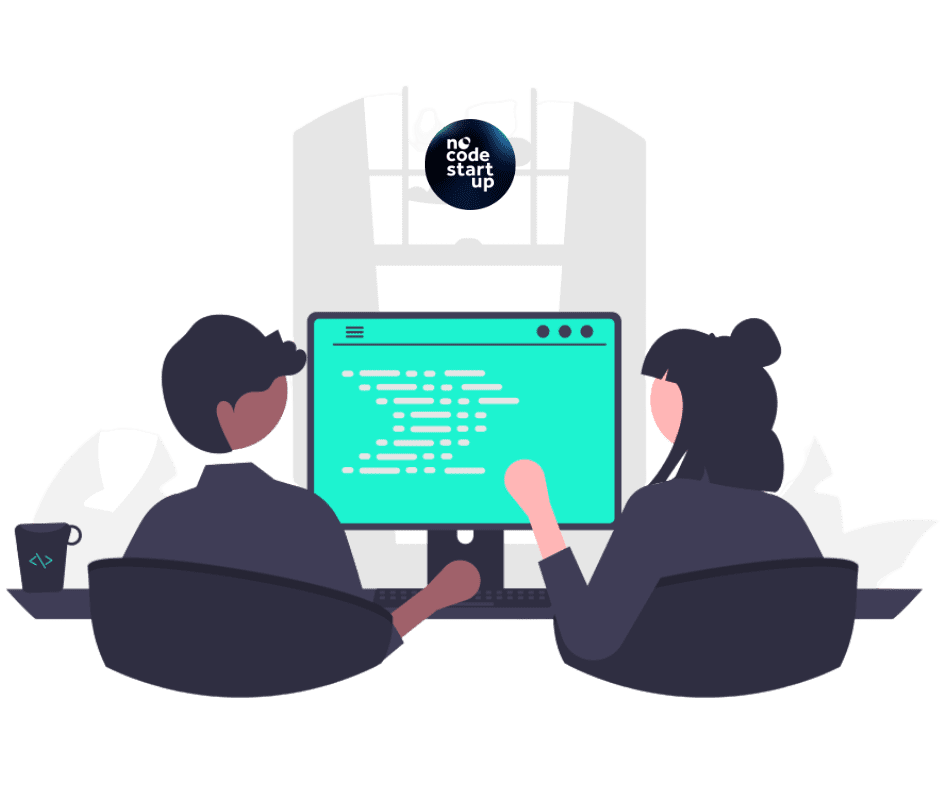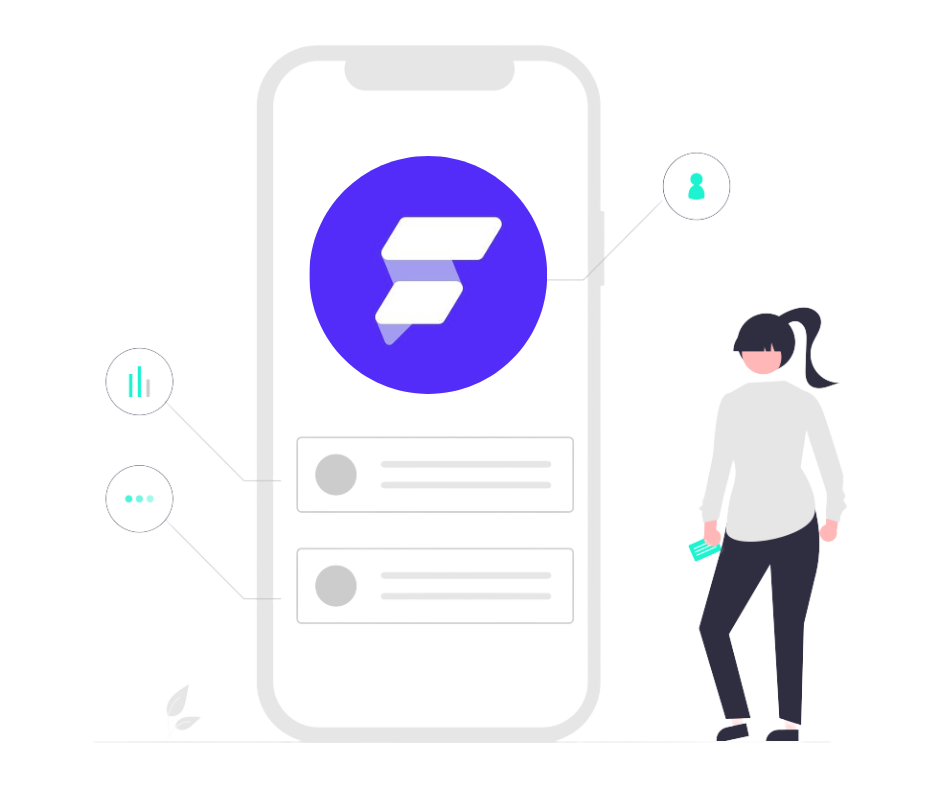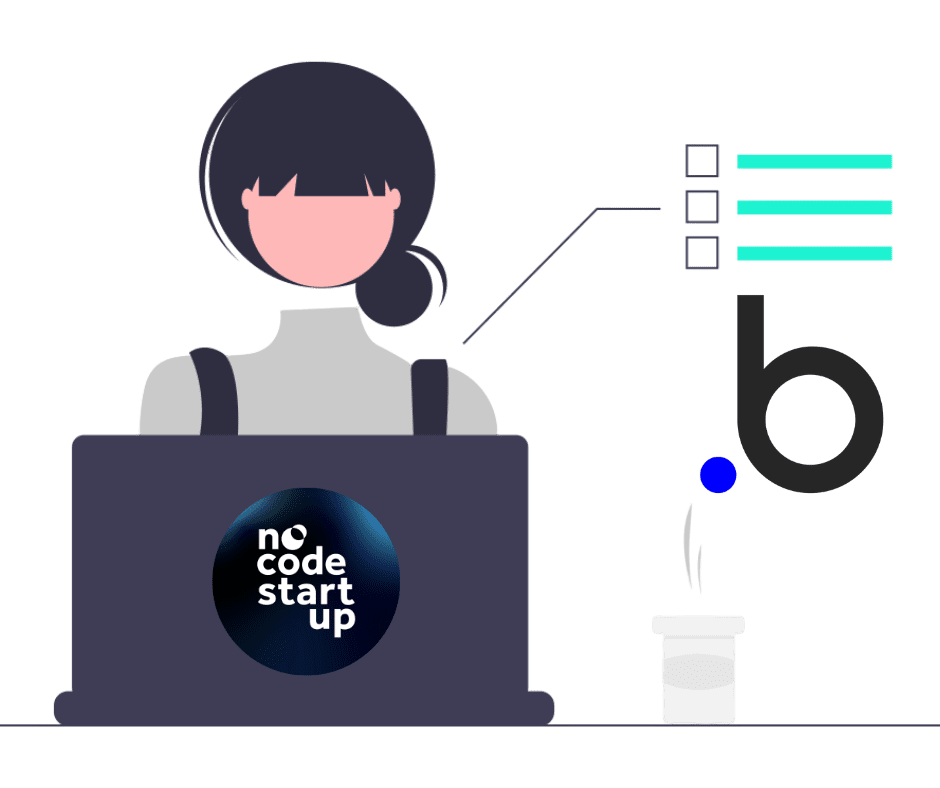In this content we will make a comparison between Bubble and FlutterFlow regarding the most important factors such as features, API connection, backend, opportunities, plans and community. In addition, we will go into each tool to understand all similarities and differences.
Watch our full video where we detail each tool in depth:
Prepared to know which is the best no-code tool, bubble io or FlutterFlow?
General Comparison
In general Bubble is more focused for apps web creation and Flutterflow mobile apps, however to create responsive apps web on both platforms it is possible.
Furthermore, on both platforms, it is possible to create apps PWA, which can solve most demands for application development.
Creating Native Mobile Apps is possible in Flutterflow and for Bubble it is necessary to use a third party service such as BDK. See in the image below.

Regarding push notifications in FlutterFlow it is possible and for Bubble it is necessary to use the BDK to have native applications with notifications.
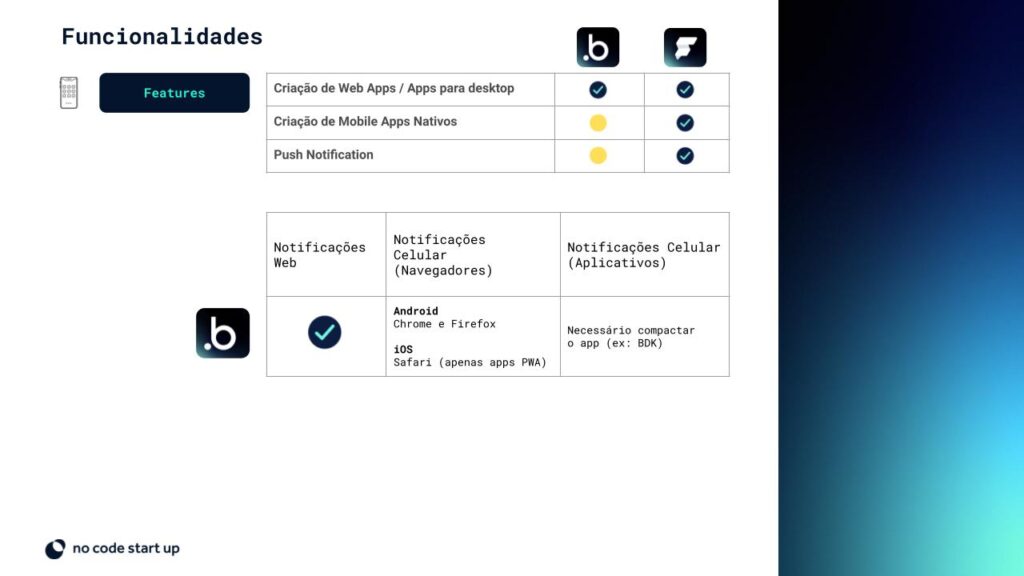
There are also other important features to compare Bubble with FlutterFlow, for example
- Complex logics
- offline operation
- collaborative construction
- Autonomy under the source code
- APIs
- Backend
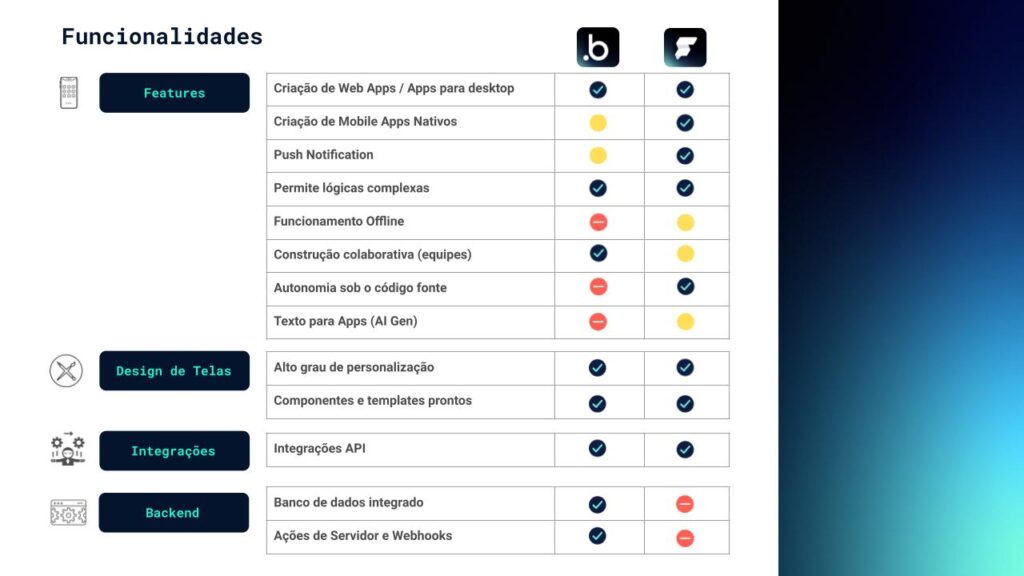
Bubble and FlutterFlow – Backend
In the composition of a complete backend we have:
- Structured and secure database
- Server Actions: These are actions that will be executed directly on the server. You can, for example, schedule actions without depending on user actions.
- Webhook: A trigger that triggers a certain action between applications.
Example: Online payments.
In Bubble, we have an integrated backend, which is possible with some positives and points to consider
Strengths
- Faster learning curve;
- No extra backend costs;
- Enables Webhook and server actions.
points to consider
- Dependence on a tool;
- Lack of tool focus;
- Compliance.
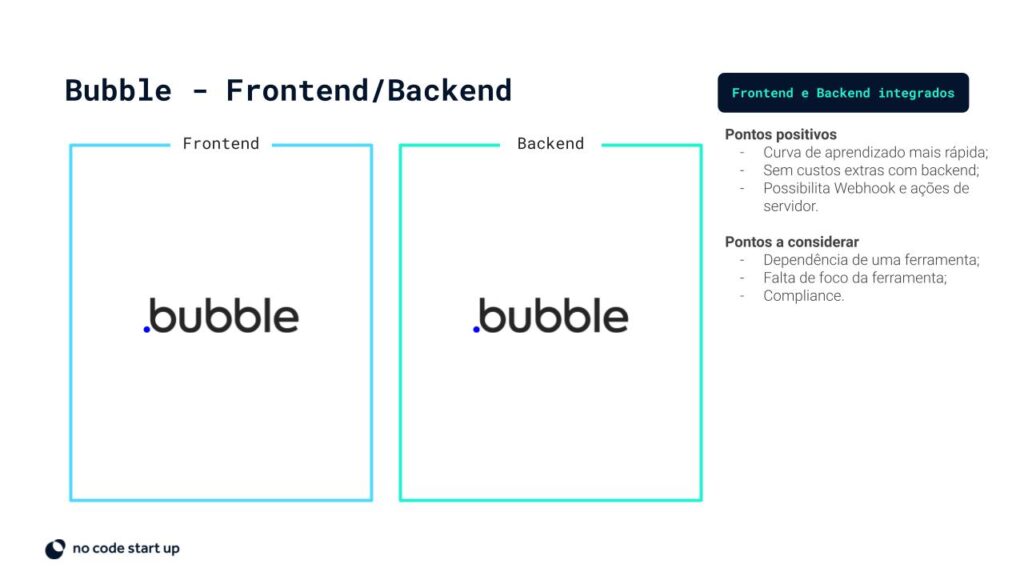
In FlutterFlow, we only have frontend, which is necessary to connect with external backend like for example firebase or Xano.
Strengths
- More professional structure;
- Decentralization of a tool;
- Tool dedicated to its function;
- Compliance.
points to consider
- Longer learning curve;
- Extra expense depending on the chosen tool.
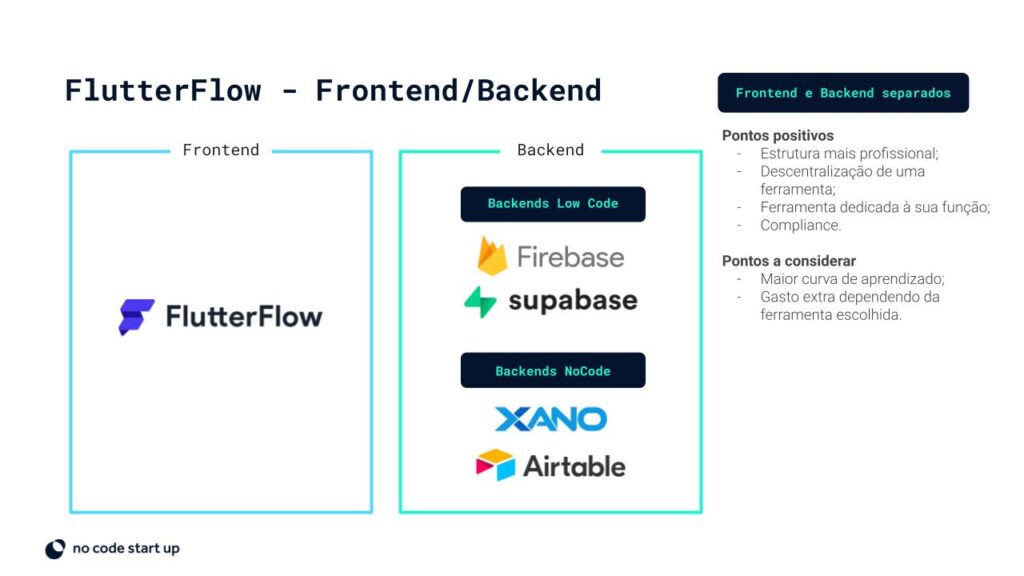
So, you must choose which is the best tool for your project.
Community
Let's compare Bubble and FlutterFlow community.
Bubble
Founded in: 2012
Number of active users: +2.500.000
Community
Very strong community with wide range of plugins as well. It's easy to find answers to specific questions.
Job opportunities
There are hundreds of job opportunities for Bubble devs.
FlutterFlow
Founded in: 2020
Number of users: +450.000
Community
Forum and documentation are quite complete. It's easy to find answers to specific questions.
Job opportunities
More and more jobs are coming up for flutterflow devs to create apps.
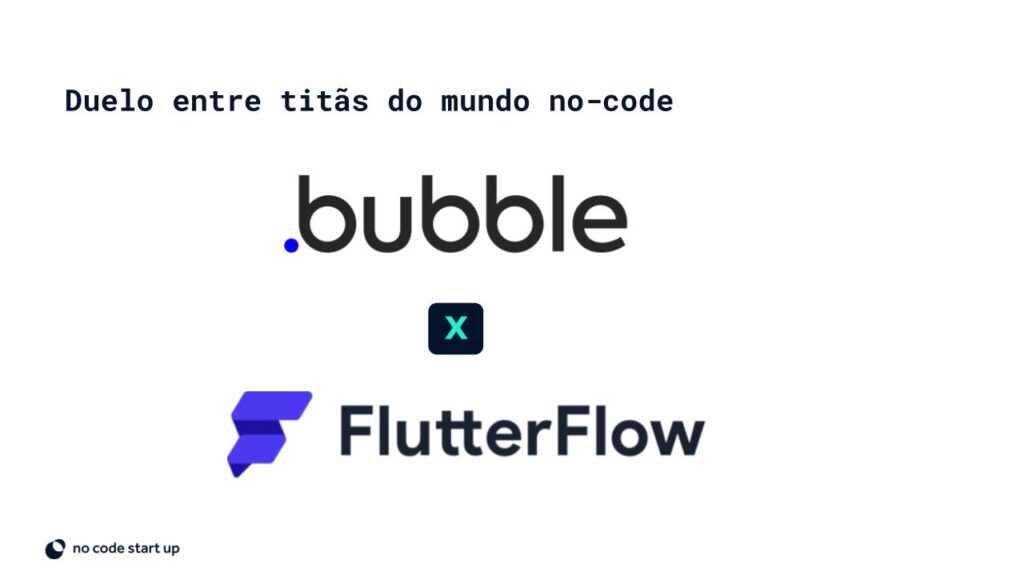
Clear Differentials
Bubble
- Pioneer tool with the largest number of features on the market;
- Integrated Backend;
- Built-in Webhooks and Server Actions;
- Platform with the largest community no-code.
FlutterFlow
- Allows you to create both mobile apps and Web Apps;
- Enables autonomy under the code;
- Tool dedicated to Front-end;
- Speed in the evolution of the tool;
- Leading innovation in the market no-code with artificial intelligence.
points to consider
Bubble
- Platform with higher learning curve;
- Does not create native apps mobiles;
- Compliance (GDPR, HIPPA, SOC etc.)
FlutterFlow
- Platform with higher learning curve;
- Requires an external backend.
- Greater contact with code.
Our opinion Bubble x FlutterFlow
Bubble
- Predominantly Web projects;
- (Slightly) faster learning curve because of the integrated backend.
FlutterFlow
- Predominantly Mobile projects (with web multiplatform option);
- Projects with greater autonomy under the developed technology (the code is yours!).
make our flutterflow course free.
Look bubble course free.
So, which one do you think is the best?
